Search Results
Showing results 1 to 20 of 56
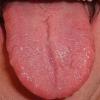
To Taste or Not to Taste
Source Institutions
In this biology activity (page 8 of the PDF), learners will determine whether they are "tasters" or "non-tasters", test selected individuals from their families and peer group for the trait, and chart
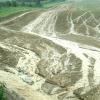
Identifying Erosion
Source Institutions
In this environmental science activity (page 3 of the PDF), leaners will identify and explain the causes of erosion.
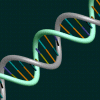
String Genome
Source Institutions
In this biology activity (page 5 of the PDF), learners use yarn and sticky labels to build a model of a DNA strand. They discover that DNA is very long, very skinny, and packs well into cells.
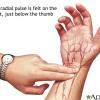
The Pulse of Gravity
Source Institutions
In this astronomy activity (page 3 of the PDF), learners will examine the effects of gravity on a person’s pulse and explore how gravity can differ from planet to planet.
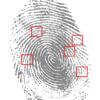
Fingerprint Identification
Source Institutions
In this crime science activity (on page 2 of the PDF), learners will explore the uniqueness of fingerprints. The will learn components of fingerprints as well as why fingerprints are left behind.
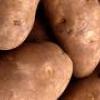
Growing Cooties
Source Institutions
In this health activity (located on page 4 of the PDF), learners will discover the importance of hand washing by observing mold growing on potatoes.
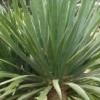
How Plants Grow
Source Institutions
In this biology activity (page 3 of the PDF), learners will explore how plants turn sunlight into food through a process called photosynthesis.
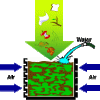
Composting Bioreactor
Source Institutions
In this activity (page 19 of the PDF) learners will create a soda bottle bioreactor by exploring the science of composting, comparing variables such as reactor design, moisture content, and nutrient r

Oh Boy Buoyancy
Source Institutions
In this physics activity, learners will explore the concept of buoyancy, especially as it relates to density.
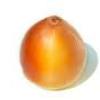
DNA From an Onion
Source Institutions
In this genetics activity, learners extract DNA from an onion, using detergent solution, a food processor, and rubbing alcohol. They will also discuss genetic engineering of plants.
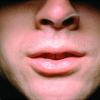
Vibrant Cords
Source Institutions
In this activity, learners will explore how the voice works and feel the vibrations produced by vocal cords.
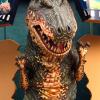
Name-a-Saurus
Source Institutions
In this paleontology activity, learners explore the system behind dinosaur nomenclature.
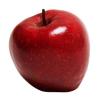
An Apple as Planet Earth
Source Institutions
In this environmental education demonstration (page 6 of the PDF), learners will see a tangible representation of the scarcity of soil resources on earth.
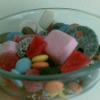
Candy Dish Natural Selection
Source Institutions
In this yummy biology activity (page 3 of the PDF), learners participate in a demonstration of natural selection.

Cover Your Mouth
Source Institutions
In this health activity (page 3 of the PDF), learners will discover why covering their mouth and nose while sneezing is so important.
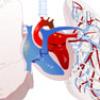
Open Heart: Disease and Diagnosis
Source Institutions
In this online activity about heart disease, learners will pick one of three patients (based on actual patient histories) and help a cardiologist diagnose and prescribe treatments for him or her.
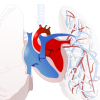
Construct a Heart Circulation Model
Source Institutions
In this online activity about anatomy, learners will correctly order the path blood takes through the heart in order to absorb oxygen to deliver to the rest of the body.
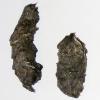
Owl Pellets
Source Institutions
In this activity (page 7 of the PDF), learners will investigate the contents of owl pellets. Learners will discover how owls digest their food as well as the kind of animals they eat.
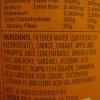
Which Foods Contain Sugar?
Source Institutions
In this health activity (page 6 of the PDF), learners examine ingredient labels of packaged food products to find out what sugar ingredients they contain.
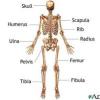
Bones
Source Institutions
In this health activity (page 5 of the PDF), learners will explore a unique connection betweeen the bones of the body.
